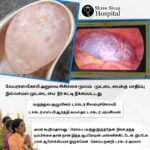What is deworming in humans?
Deworming (sometimes known as worming, drenching, or dehelmintization) is the giving of an anthelmintic drug (a wormer, dewormer, or drench) to a human or animal to rid them of helminths parasites, such as roundworm, flukes, and tapeworm.
What are the major reasons for worm infestations?
Worm infestation is a common issue that is seen mostly among children, but due to the change in lifestyle patterns, this infection is also seen among adults. In most cases, worm infestation is not a life-threatening infection but it can lead to various clinical problems. In India, worm infestation is one of the reasons which is causing an increase in infant morbidity. This is mostly caused due to the unhygienic lifestyle that one leads and one of the common modes is through the consumption of uncooked meat.
Signs and symptoms of deworming
Common symptoms of intestinal worms are:
· abdominal pain
· diarrhea, nausea, or vomiting
· gas/bloating
· fatigue
· unexplained weight loss
· abdominal pain or tenderness
A person with intestinal worms may also experience dysentery. Dysentery is when an intestinal infection causes diarrhea with blood and mucus in the stool. Intestinal worms can also cause a rash or itching around the rectum or vulva. In some cases, you will pass a worm in your stool during a bowel movement.
Some people may have intestinal worms for years without experiencing any symptoms.
What are the ways in which humans can get parasitic worms?
Some of the ways in which humans can get parasitic worms include:
- Lick from one’s pet
- Walking barefoot
- Swimming in a pool with untreated water.
- Not washing hands before and after meals or before preparing food
- Under-cooked meat
- Accidental swallowing/ ingestion of eggs, larvae, cysts or adult worms living in food, drink, soil, and feces
Risk factors
Children are particularly susceptible to intestinal worms. That’s because they may play in environments with contaminated soil, such as sandboxes and school playgrounds. Older adults are also at increased risk due to weakened immune systems.
According to the World Health Organization (WHO), about 10 percent Trusted Source of people in the developing world are infected with intestinal worms. People in developing countries are at the highest risk due to drinking water from contaminated sources and because of decreased sanitation levels.
Diagnosis
If you have any of the above symptoms, and especially if you have traveled out of the country recently, you should make an appointment with your doctor. Your doctor may then carry out an examination of your stool. It may take several stool samples to confirm the parasite’s presence.
Another test is the “Scotch tape” test, which involves applying tape to the anus several times in order to retrieve pinworm eggs, which can be identified under a microscope.
If worms or eggs are not detected, your doctor may carry out a blood test to look for antibodies your body produces when it’s infected with a parasite. Additionally, your doctor may take an X-ray or use imaging tests such as computed tomography (CT) or magnetic resonance imaging (MRI) depending on the extent or location(s) of the disease suspected.
Treatment
Some types of intestinal worms, such as tapeworms, may disappear on their own if you have a strong immune system and healthy diet and lifestyle. However, depending on the type of intestinal worm infection, one may require treatment with an antiparasitic medication. Serious symptoms shouldn’t be ignored. See your doctor if you:
- have blood or pus in your stool
- are vomiting daily or frequently
- have an elevated body temperature
- are extremely fatigued and dehydrated
Your treatment plan will be determined based on the type of intestinal worm you have and your symptoms. Tapeworm infections are usually treated with oral medication, such as praziquantel (Biltricide), which paralyzes the adult tapeworm. The praziquantel (Biltricide) causes the tapeworms to detach from the gut, become dissolved, and then pass out of your body through your stool.
Common treatments for a roundworm infection include mebendazole (Vermox, Emverm) and albendazole (Albenza).
Symptoms typically begin to improve after a few weeks of treatment. Your doctor will most likely take and analyze another stool sample after treatment is complete to see if the worms have disappeared.
Prevention
To prevent intestinal worms, regularly wash your hands with soap and hot water before and after using the toilet and before preparing or eating foods.
You should also practice food safety:
- avoid raw fish and meat
- thoroughly cook meat to temperatures of at least 145°F (62.8°C) for whole cuts of meat and 160°F (71°C) for ground meat and poultry
- let cooked meat rest for three minutes before carving or consuming
- freeze fish or meat to –4°F (–20°C) for at least 24 hours
- wash, peel, or cook all raw fruits and vegetables
- wash or reheat any food that falls on the floor
If you’re visiting developing countries, cook fruits and vegetables with boiled or purified water before eating, and avoid contact with soil that may be contaminated with human feces.
What is deworming in humans?
Deworming (sometimes known as worming, drenching, or dehelmintization) is the giving of an anthelmintic drug (a wormer, dewormer, or drench) to a human or animal to rid them of helminths parasites, such as roundworm, flukes, and tapeworm.
What are the major reasons for worm infestations?
Worm infestation is a common issue that is seen mostly among children, but due to the change in lifestyle patterns, this infection is also seen among adults. In most cases, worm infestation is not a life-threatening infection but it can lead to various clinical problems. In India, worm infestation is one of the reasons which is causing an increase in infant morbidity. This is mostly caused due to the unhygienic lifestyle that one leads and one of the common modes is through the consumption of uncooked meat.
Signs and symptoms of deworming
Common symptoms of intestinal worms are:
· abdominal pain
· diarrhea, nausea, or vomiting
· gas/bloating
· fatigue
· unexplained weight loss
· abdominal pain or tenderness
A person with intestinal worms may also experience dysentery. Dysentery is when an intestinal infection causes diarrhea with blood and mucus in the stool. Intestinal worms can also cause a rash or itching around the rectum or vulva. In some cases, you will pass a worm in your stool during a bowel movement.
Some people may have intestinal worms for years without experiencing any symptoms.
What are the ways in which humans can get parasitic worms?
Some of the ways in which humans can get parasitic worms include:
- Lick from one’s pet
- Walking barefoot
- Swimming in a pool with untreated water.
- Not washing hands before and after meals or before preparing food
- Under-cooked meat
- Accidental swallowing/ ingestion of eggs, larvae, cysts or adult worms living in food, drink, soil, and feces
Risk factors
Children are particularly susceptible to intestinal worms. That’s because they may play in environments with contaminated soil, such as sandboxes and school playgrounds. Older adults are also at increased risk due to weakened immune systems.
According to the World Health Organization (WHO), about 10 percent Trusted Source of people in the developing world are infected with intestinal worms. People in developing countries are at the highest risk due to drinking water from contaminated sources and because of decreased sanitation levels.
Diagnosis
If you have any of the above symptoms, and especially if you have traveled out of the country recently, you should make an appointment with your doctor. Your doctor may then carry out an examination of your stool. It may take several stool samples to confirm the parasite’s presence.
Another test is the “Scotch tape” test, which involves applying tape to the anus several times in order to retrieve pinworm eggs, which can be identified under a microscope.
If worms or eggs are not detected, your doctor may carry out a blood test to look for antibodies your body produces when it’s infected with a parasite. Additionally, your doctor may take an X-ray or use imaging tests such as computed tomography (CT) or magnetic resonance imaging (MRI) depending on the extent or location(s) of the disease suspected.
Treatment
Some types of intestinal worms, such as tapeworms, may disappear on their own if you have a strong immune system and healthy diet and lifestyle. However, depending on the type of intestinal worm infection, one may require treatment with an antiparasitic medication. Serious symptoms shouldn’t be ignored. See your doctor if you:
- have blood or pus in your stool
- are vomiting daily or frequently
- have an elevated body temperature
- are extremely fatigued and dehydrated
Your treatment plan will be determined based on the type of intestinal worm you have and your symptoms. Tapeworm infections are usually treated with oral medication, such as praziquantel (Biltricide), which paralyzes the adult tapeworm. The praziquantel (Biltricide) causes the tapeworms to detach from the gut, become dissolved, and then pass out of your body through your stool.
Common treatments for a roundworm infection include mebendazole (Vermox, Emverm) and albendazole (Albenza).
Symptoms typically begin to improve after a few weeks of treatment. Your doctor will most likely take and analyze another stool sample after treatment is complete to see if the worms have disappeared.
Prevention
To prevent intestinal worms, regularly wash your hands with soap and hot water before and after using the toilet and before preparing or eating food.
You should also practice food safety:
- avoid raw fish and meat
- thoroughly cook meat to temperatures of at least 145°F (62.8°C) for whole cuts of meat and 160°F (71°C) for ground meat and poultry
- let cooked meat rest for three minutes before carving or consuming
- freeze fish or meat to –4°F (–20°C) for at least 24 hours
- wash, peel, or cook all raw fruits and vegetables
- wash or reheat any food that falls on the floor













